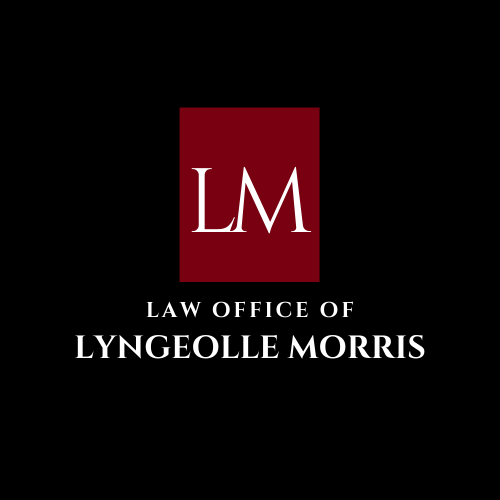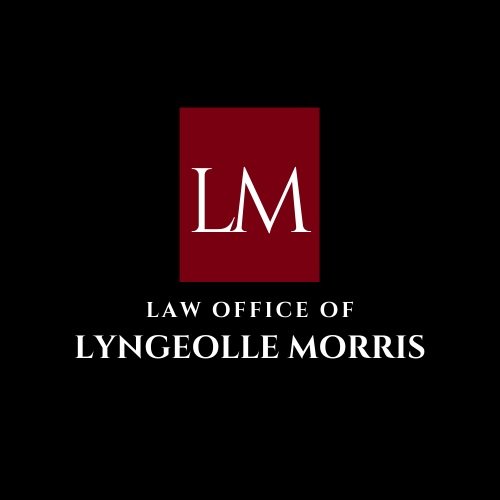Protecting Your Intellectual Property: Estate Planning Tips for Copyright Owners in Barbados
Introduction
As a creator, your craft is a critical part of your livelihood, success and legacy. It is therefore of utmost importance that you safeguard your intellectual property even after you’re no longer here.
By implementing strategic estate planning, you can protect your copyright by putting measures in place for how you would want to distribute your copyright works to your loved ones.
The topic of estate planning can be a very difficult one to have, especially if you’re a creative individual focused on your craft. However, if you fail to plan how your copyright ownership should be distributed after death, this can lead to complications and potential disputes among your heirs. Therefore, taking the necessary steps to protect your intellectual property becomes critical.
In this article, we’ll take a look at the legal strategies you can put in place to incorporate your copyrighted works in your estate plan in Barbados.
Understanding intellectual property and copyright
According to the World Intellectual Property Organization, intellectual property refers to “...creations of the mind, such as inventions; literary and artistic works; designs; and symbols, names and images used in commerce.”
Intellectual property encompasses intangible assets which, by virtue of their creative component, can hold significant value. There are various types of intellectual property assets. These include copyrights, patents, trademarks, industrial design, geographical indications, and trade secrets.
This article will focus on how copyright owners can protect and pass on their intellectual property after they die.
Basics of Copyright in Barbados
While estate planning focuses on the future, protecting your copyrights during your lifetime is equally important. Here are some points to consider:
1. What is eligible for copyright protection?
According to the Barbados Copyright Act, Cap. 300, the following categories of work are eligible for copyright protection:
Original literary, dramatic, musical or artistic works;
Sound recordings, films, broadcasts or cable programmes;
Typographical arrangements of published editions
Performances
2. How Is Your Work Protected?
Publication of your work
In order to qualify for protection in Barbados, the work must have been published in Barbados.
Publication means either issuing copies of the work or making copies available to the public by sale, electronic retrieval system or otherwise.
You may wish to take it a step further by placing a Copyright notice on your work in the following manner:
Insert the Word ‘Copyright’ or the symbol © on the work
Insert the year of the initial publication
Insert the name of the copyright owner
For Example: ©. 2024. John Brown Records.
Copyright Licensing
Copyright licensing involves entering into an agreement in which the copyright owner grants permission to another party to use, distribute, reproduce or modify their copyrighted work typically in exchange for some form of compensation.
This licensing agreement will outline the terms and conditions of use of the copyrighted material. This permits the creator to maintain control over his or her work while authorizing others to utilize it based on the agreed terms.
Monitoring and Enforcement of Your Rights
As the copyright owner, you have the exclusive right to authorize how others use your work. This is referred to as your ‘economic and moral rights’.
As the copyright owner, you have the exclusive right to do or authorize others to:
Copy the work
Issues copies of the work to the public
Perform, play or show the work in public
Broadcast the work or include it in a cable programme service
Adapt the work
To protect your IP, it’s therefore essential that you regularly monitor the use of your copyrighted works to ensure that no one is infringing on your rights. Whenever you discover that someone has made unauthorized use of your work, you should take the appropriate action to enforce your copyrights, whether by sending cease and desist letters, seeking damages, an injunction, or pursuing any other necessary legal remedies.
Key things to consider when Distributing your Assets as a Copyright Owner
Here are some key elements to consider when creating an estate plan for your intellectual property:
1. Identifying and valuing your intellectual property assets
The first step is to create a comprehensive inventory of your copyrighted works, which includes identifying all the works you've created and determining the associated value of the asset (if you are aware). Consider hiring the services of a professional who specializes in appraising creative works.
2. Select your beneficiary / beneficiaries for your copyright
The next step is to determine who will benefit from your copyright. Whether it’s a single person or multiple individuals, it’s crucial that you determine who will be entitled to your copyright works after you die.
3. Put a Will in Place
A Last Will and Testament is one of the most important estate planning documents that you can put in place to ensure that your wishes and intentions are clearly documented.
A Will allows you to specify the person or persons you wish to manage your estate, in what manner, who your beneficiaries are and how they will benefit,, as well as other arrangements that you wish to be executed after your death.
By legally documenting your wishes regarding your copyright, you can provide your loved ones and trusted advisors with the clarity they need to properly organise and appropriate your IP assets.
Transferring your copyright after your death
One of the first steps to protect your intellectual property is to create a Last Will & Testament that specifically addresses your copyright works. Within your Will, you can state your wishes regarding the ownership, management, and distribution of your copyrighted works. Here are some considerations to keep in mind:
1. Identify Your Copyrighted Works
You should make a detailed list of all your copyrighted works and any other intellectual property you own. This comprehensive list will serve as the foundation for distributing your IP assets within your estate plan.
2. Choose an Executor or Trustee
When selecting your executor or trustee, you should carefully consider the traits of the individual you choose.
Your executor plays an important role in safeguarding your assets, gathering critical information and records, contacting various parties regarding your estate and other key tasks required to manage and administer your estate.
This person should be trustworthy and transparent while remaining neutral throughout the process and be willing to take on this role when the time comes.
It may be best to consider someone who understands the value of your creative works and would be capable of managing and distributing your copyrights to the entitled beneficiaries.
To learn more about how to choose the right executor for your Will, check out this article.
3. Specify Your Intentions
In your will, you should clearly outline your intentions regarding the future use and management of your copyrighted works. You may want to specify whether you wish for your works to be sold, licensed, donated to a specific organization, or kept within your family for future generations.
By creating a Will that caters to your intellectual property assets, this ensures that your copyrights are acknowledged and protected according to your wishes.
By taking this step, you can have peace of mind knowing that your creative legacy will be preserved and managed appropriately.
Duration of Copyright
Below, we share a breakdown of the duration of copyright based on the type of copyright ownership.
1. Literary, Dramatic, Musical, or Artistic Works
If you are a copyright owner under this category, your copyright exists for the duration of your life and for 50 calendar years following your death.
If the copyright is jointly owned, it exists for the life of the last surviving copyright owner and for 50 calendar years following their death.
If the author is unknown, the copyright exists for 50 calendar years following the year of first publication. If the identity of the author is revealed during this period, copyright continues based on the author's life and an additional 50 calendar years.
2. Computer-Generated Works
Copyright for computer-generated works expires 50 calendar years following the calendar year in which the work was made.
3. Sound Recordings and Films
Copyright under this category exists for 50 calendar years immediately following the calendar year in which it was made or made available to the public.
4. Broadcasts and Cable Programmes
Copyright exists for 50 calendar years immediately following the calendar year in which the broadcast was made or the programme included in a cable programme service. Repeat broadcasts or cable programmes have the same duration as the original.
5. Typographical Arrangement of Editions
Copyright under this category exists for the 25 calendar years immediately following the calendar year in which the edition was first published.
5. Performance Rights
Copyright for performance rights exists for 50 calendar years after the end of the year in which the performance occurred.
Conclusion: Ensuring the future of your intellectual property
By documenting how you wish to transfer your copyrights through your Last Will & Testament, you can feel assured about who will receive ownership of your copyrighted works and how they should be managed.
If you do not put a Will in place outlining how your copyrights are to be passed, they will be distributed according to the default legal position, that is, under Barbados intestacy rules.
For more information on how intestate distribution works in Barbados, check out this article here.
Questions?
In order to formalize your wishes surrounding an estate plan that covers your copyright, it’s important that you consult with an attorney who can assist you with exploring the best options for you.
If you have any further questions about how you can protect and pass on your copyright, our office would be pleased to assist you.
To learn how our office can assist, click here.
Articles Mentioned:
How an Estate Is Settled If There Is No Will: Intestate Succession in Barbados
Reference List
World Intellectual Property Organization (n.d). What is Intellectual Property?. WIPO. https://www.wipo.int/about-ip/en/. Accessed January 2024.
Copyright Act, Chapter 300 (Act 1998-4, as amended up to Act 2006-1). WIPO Lex. (n.d.). Accessed January 2024. https://www.wipo.int/wipolex/en/text/191403. Accessed January 2024.



